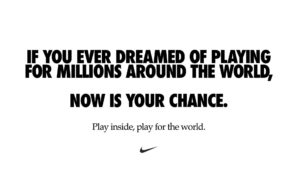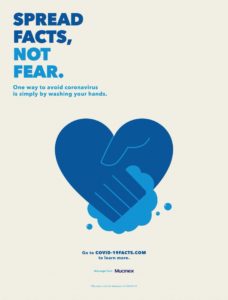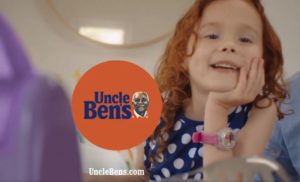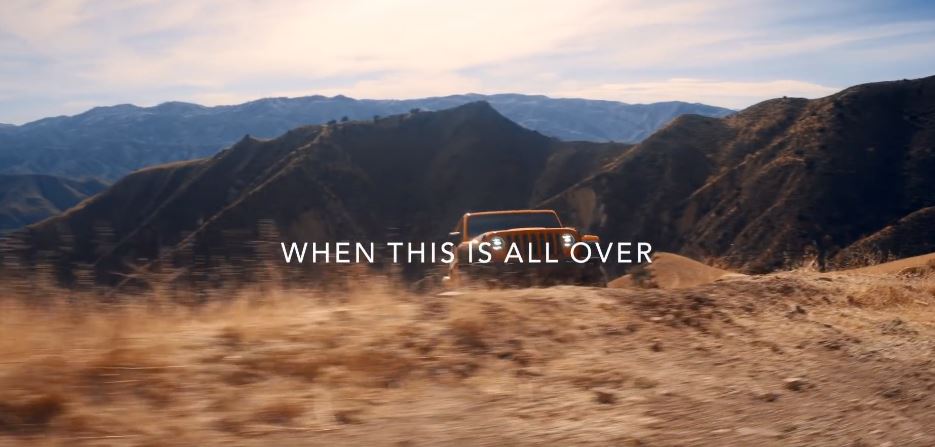It’s Just Another Marketing Opportunity as Companies and Special-Interest Groups Hawk Products and Ideas on the Internet and TV
My neighbor, a university history professor, has been arguing in our occasional socially distanced discussions about how coronavirus is bringing the end of capitalism.
But then, you need just look on the Internet or television to see the inventiveness of the capitalist mind to adjust even to a global pandemic to witness the remarkable way to turn disease into a money-making and messaging effort.
There is no doubt that coronavirus has caused major disruption for marketers, as well as for consumers, manufacturers and those businesses like the news media which are dependent on advertising.
But there also has been a huge increase in the use of online advertising to lure consumers to buy legitimate and illegitimate medical goods, from masks to pharmaceuticals, and the use of what is emerging as a well-organized messaging campaign to challenge government’s authority to issue stay-at-home orders altogether. The quick spread of public protests to push states into re-opening in what strikes a majority of the country as premature and outwardly dangerous is no accidental development.
Virus crisis-related ads are offering up tips and guides on how brands should be approaching their work right now.
Just for context, news reports from Germany and other areas beginning to open up are not seeing any pent-up buying in stores.

An Opportunity, Not a Problem
Despite recording the advertising industry’s huge drop in business —upward of 70%—Ad Age runs regular accounts about the attempts to persuade consumers that working and recreating from home is an opportunity, rather than a problem.
How common it is becoming for car companies now to offer warm messages about their community spirit and offering extended payback terms as reminders that your car is an escape. Or here is Oscar Meyer using stay-at-home messaging to promote Front Yard Barbeques where they can see their neighbors, but from a distance of at least 12 hot dogs apart with a simultaneous donation to a public food program. McDonald’s suggests that while plenty of moments feel different these days, there is still a sense of normalcy in everyday acts such as eating its food while social distancing.
 “Marketers, much like presidents, CEOs, or drunken yahoos, don’t magically change in a crisis or extreme circumstances. For good or ill, their existing qualities merely become more stark,” says Fast Company magazine. “The world advertising typically reflects back to us—beautiful people in close contact, high-fives, face-touching, and generally having good times in public—is a life that feels far, far away right now. . . . Now what? You’re gonna run an ad with the employee at the curbside takeout window looking like Dustin Hoffman in Outbreak, handing the to-go order to a driver with their mouth covered by a bandanna and wearing nitrile gloves and a cut-up trash bag around their body?. Nah. That’s a wee bit dark.”
“Marketers, much like presidents, CEOs, or drunken yahoos, don’t magically change in a crisis or extreme circumstances. For good or ill, their existing qualities merely become more stark,” says Fast Company magazine. “The world advertising typically reflects back to us—beautiful people in close contact, high-fives, face-touching, and generally having good times in public—is a life that feels far, far away right now. . . . Now what? You’re gonna run an ad with the employee at the curbside takeout window looking like Dustin Hoffman in Outbreak, handing the to-go order to a driver with their mouth covered by a bandanna and wearing nitrile gloves and a cut-up trash bag around their body?. Nah. That’s a wee bit dark.”
Instead, virus crisis-related ads are offering up tips and guides on how brands should be approaching their work right now.
The only problem is that some of them aren’t true.
Misinformation and Phishing
Lots of computer security and health agencies are warning about the same thing: ads that are filled with misinformation or that use coronavirus themes to disguise phishing attacks for personal information.
And ads for face masks that don’t work as stated are still appearing on Facebook, Instagram and Google, for example.
Consumer Reports acknowledged that one of its writers bought advertising for material from a fictitious company with fraudulent goods just to test the filtering systems, before pulling down the ads once Facebook had approved them.
Hey, it’s capitalism and a free market of sometimes bad ideas.
Politics, Too

That brings us to the world of politics. The New York Times reported that more than half of all political ads on television now are about coronavirus, at least 33 in one week, according to Advertising Analytics, an ad tracking firm. Democrats are using ads to say Donald Trump and his team have failed to provide medical equipment, for example. Republican ads use the same provision, however under-scaled to the actual need, as proof that their leader is protecting workers.
Facebook said this week that it was banning users from organizing “events that defy government’s guidance on social distancing”—namely protests that are calling for re-opening of all businesses immediately after an increasing number of rallies and events to challenge statewide stay-at-home orders.
Almost needless to say, that announcement, in turn, drew condemnation from right-wing supporters of the protest movement, including the president, and strange bed-fellow, the ACLU. Facebook added that event pages for protests are required to make clear that participants must follow social distancing rules—which they are not.
As reports in The Times and The Washington Post have been making clear, ads and promotion of anti-lockdown protests are being funded, organized and pushed in a wide-ranging and well-financed conservative campaign. They seek to undermine restrictions that medical personnel say coronavirus makes necessary but that protesters call overkill. Less often mentioned is that a dead economy endangers a Trump re-election.
News reports have documented a network of right-leaning individuals and groups, aided by online allies across the country.
Along the way, there are side issues aplenty, including whether Facebook and others are acting on their own or at the prompting of various state officials who do or do not want the protests, even in the face of death-defying and idiotic mask-less protesters either unaware or uncaring that many carry disease without symptoms. We’ll know in about three weeks, no doubt.
“Unless government prohibits the event during this time, we allow it to be organized on Facebook,” Facebook announced. “For this same reason, events that defy the government’s guidance on social distancing aren’t allowed on Facebook.”
Chipotle Mexican Grill is pushing its takeout menu during stay-at-home, apparently reporting an increase in business. “I think there’s fatigue in cooking,” CEO Brian Niccol said on Chipotle’s quarterly conference call.
Hey, celebrate or not, advertising for burritos, cars or political opposition seems to have a price in our capitalist, message-hungry world.
Featured image: Screengrab from a Jeep commercial.




